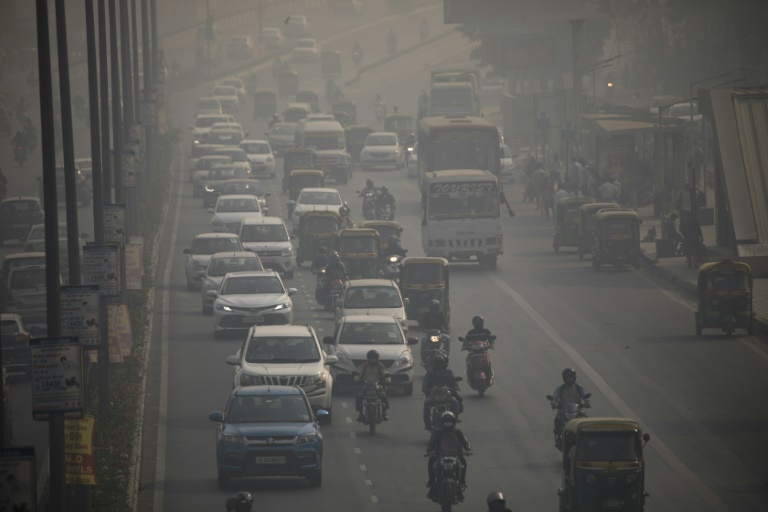
NEW DELHI: A steady stream of patients is coming out of New Delhi's brownish atmosphere for treatment at the Breathe Better clinic, where lung specialist Davinder Kundra is confronting what he calls the "double whammy" of deadly smog and the coronavirus.
Kundra is among a growing number of doctors who are worried as the capital's notorious air again hits peak pollution levels while a new pandemic wave is battering hospitals.
Every winter pollution season, demand for beds spikes in the world's most polluted capital because of an increase in lung diseases and chronic bronchitis.
Now the coronavirus has come back after a lull, new cases reaching a record 7,000 a day. Some official predictions say the figure could soon exceed 12,000.
India already has the world's second-highest number of cases -- 8.5 million -- behind the United States.
With studies strongly linking air pollution to increased coronavirus deaths, Delhi chief minister Arvind Kejriwal said the intense annual smog from farm fires, cars and industry was worsening the pandemic crisis.
As he fretted over the x-ray of one pneumonia patient, Kundra said he spots at least one coronavirus suspect a day in his small clinic and orders them to get tested.
"Tiny microscopic pollutants act as carriers for the virus and go deep into the lungs. So Delhi is facing a double whammy because of pollution and coronavirus cases," he said.
"Patients who have chronic obstructive pulmonary disease and are exposed to increased pollution are prone to have more severe forms of the infection."
- Smog guns -
With more residents on the streets ahead of India's main holiday, Diwali -- the festival of light -- on Saturday, doctors fear dark days ahead for the city of 20 million people.
Kejriwal has banned Diwali firecrackers and launched legal action to get private hospitals to set aside more beds for Covid-19 patients.
The city has deployed smog guns, which blast out clouds of water intended to bring pollution particles to the ground.
But environmental activists such as Vimlendu Jha say the authorities are not serious about the problem, and have demanded suspensions on construction and even some power stations.
Every winter, Delhi residents carefully scan pollution indexes, which measure tiny but deadly PM 2.5 particles, up to 2.5 microns in width.
A Harvard University study released last month said an increase of just one micron per cubic metre of PM 2.5 causes an 11 percent jump in Covid-19 mortality.
Other studies indicate the problem is particularly bad for poorer people -- such as slum dwellers -- who tend to live nearer pollution sources.
With no respite in sight, Delhi doctors have little choice but to recommend face masks and air purifiers at home, though few in slums can afford such luxuries.
Navjot Kaur, who had started riding her scooter to her job as a lab technician to avoid public transport and the risk of Covid-19, said taking to two wheels had left her exposed to the smog: "Now I get off and my eyes sting, I have to splash water on them."
"The pollution has come quicker this year and seems worse,” she said.
Other Delhi inhabitants such as software engineer Naveen Malhotra, who suffers from a respiratory condition, want to leave the city altogether because "coronavirus attacks the lungs".
He said: "I am just waiting for an opportunity to shift to a place where there is less pollution."